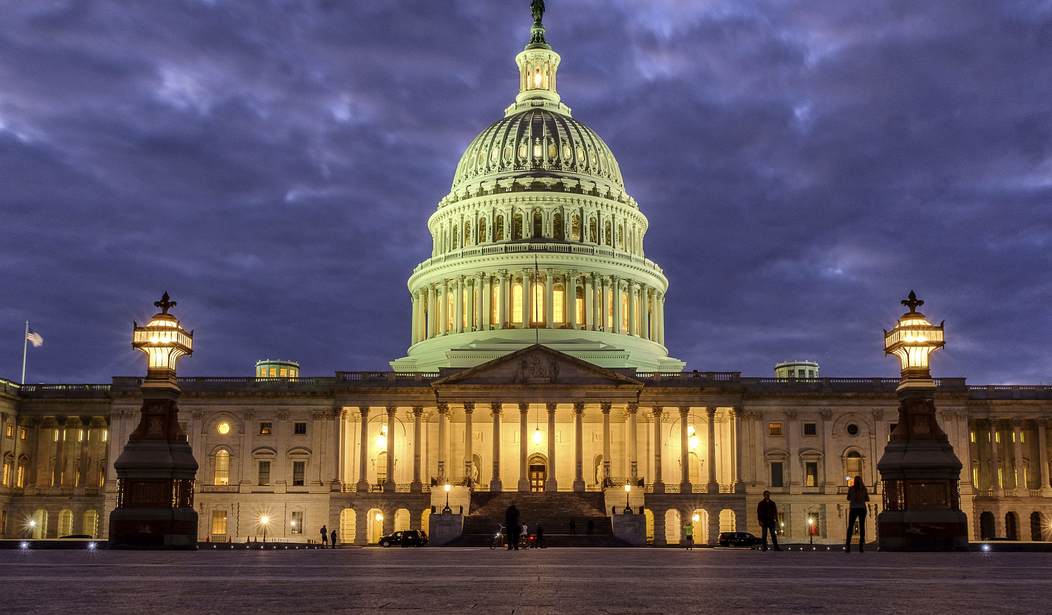Politicians at Senator McCain’s funeral were bemoaning the loss of civility in politics, and Judge Brett Kavanaugh’s confirmation hearing this week for the Supreme Court surely promises to prove that.
There definitely has been a decline in political civility in recent years. Some say it started with Robert Bork’s 1987 Supreme Court confirmation battle. Whenever it started, we seem to have a hit an all-time low. Just last June, Representative Steve Scalise was gravely wounded and other Congressmen were shot at. There was a time when people involved in politics like Sarah Sanders could at least expect to go to dinner with her family without being harassed, or feel secure in the knowledge that mobs won't come to their homes, as just happened to Trump advisor Stephen Miller.
A recent Rasmussen survey finds that 59% of all voters are “concerned that those opposed to President Trump’s policies will resort to violence.” That is up from a similar question asked during the second year of the Obama administration where 53% felt the same way.
But despite all the pleas for more civility in politics, these discussions miss something more fundamental: what is driving all this.
The reason for the increased tension is simple. As more is at stake, the battle over who makes decisions grows more contentious. Government has grown by leaps and bounds, and the decisions that are being made have far-reaching consequences for our checkbooks and personal freedoms. A century ago, federal government spending was only about 2 to 3 percent of GDP. If the government was still that small, people likely wouldn’t care as passionately about electionoutcomes.
A football team is probably going to play a lot harder in the Super Bowl than one that's playing with no chance of making the playoffs. Similarly, as the size and scope of the federal government increases, interest groups will spend more on elections in an effort to influence the levers of government.
Recommended
In the year 2000, I wrote a study in the Journal of Law and Economics that found that the growth of state governments could explain almost 80 percent of the increase in spending on gubernatorial and legislative races from 1976 to 1994. .
Even after accounting for how many races were contested, how competitive they were, and whether control of the legislature was closely divided, states with the fastest-growing budgets experienced the largest increases in campaign expenditures.
This point is just as applicable to judicial confirmation battles. The Supreme Court — and the federal courts generally — are more deeply involved in our lives than they were 50 years ago. The dramatic expansion of the judiciary's role can be seen by the increase in federal cases. Since the 1960s, the number of circuit court cases has increased from 21 per million Americans to 223 per million. District court cases have grown over the same period from 448 to 1,252 per million Americans.
The growth is easy to explain. Whole new branches of law came into existence as new federal agencies were formed. The 1960s saw the creation of the Equal Employment and Opportunity Commission and the National Transportation Safety Board. In the 1970s, there was the Environmental Protection Agency, Consumer Product Safety Commission, Federal Election Commission, Occupational Safety and Health Administration, Nuclear Regulatory Commission, and U.S. Commodity Futures Trading Commission. Each of these organizations created a host of new, often controversial regulations that fall under the jurisdiction of federal courts. Existing agencies were also granted new regulatory powers.
Long gone are the days when a Republican president might appoint a Democrat to the Supreme Court, as Herbert Hoover did in 1932. Back then, most judges could be expected to interpret the laws as they were written, rather than bending them to fit political agendas.
In my 2013 book, Dumbing Down the Courts, I show that the length of Supreme Court confirmationhearings has grown with the expansion of judicial power. So too has the rate at which nominations are voted down.
There's no magic fix to making our political culture more civil. But the best way of reversing the trend is to give government less control over our lives.
Lott is the president of the Crime Prevention Research Center and the author most recently of “The War on Guns.”

























Join the conversation as a VIP Member